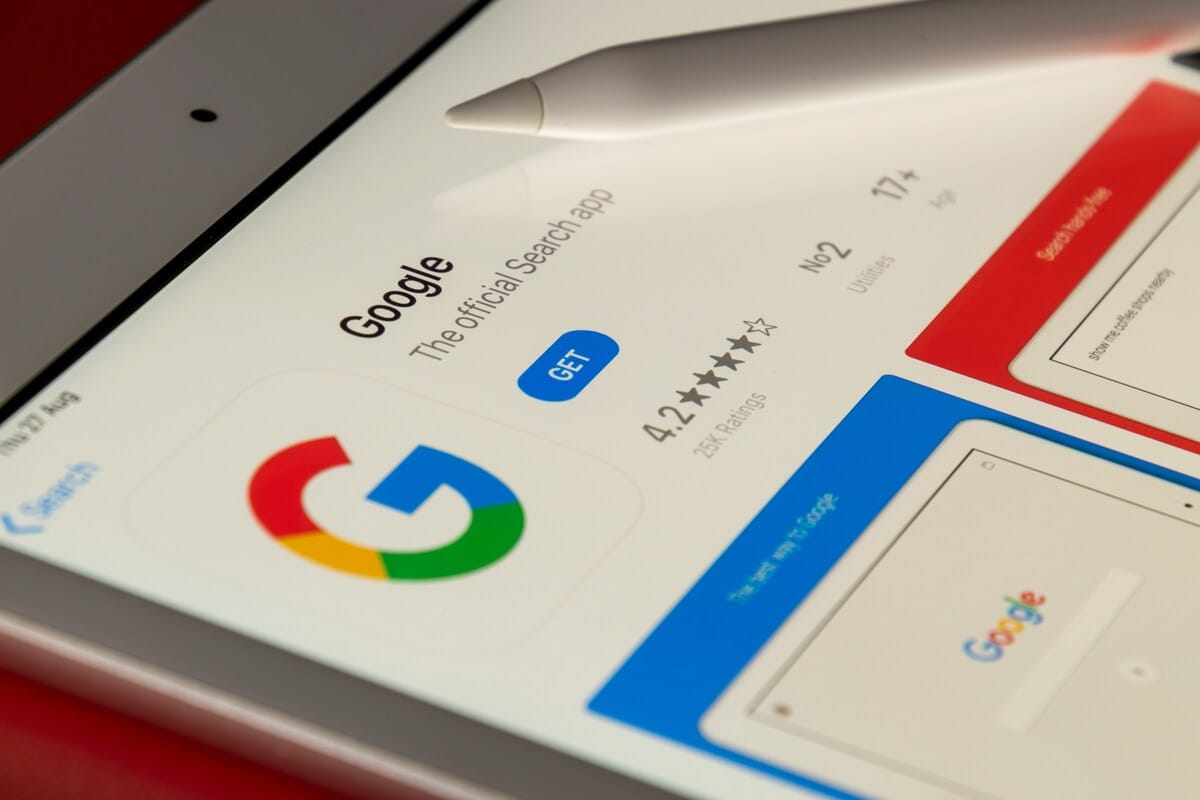This article is based on Ben Hoffman’s brilliant interview on the Compete Clarity podcast. Check out the full episode here .
No matter what you do for a living, you need to start thinking about generative AI and how it will impact your career.
In the field of competitive intelligence (CI) specifically, AI has the potential to be tremendously helpful in our day-to-day work. Constantly tracking competitors, and consuming vast amounts of information, is a massive part of CI. Anything that can make digesting and understanding all that data faster naturally benefits us as CI professionals.
That's why I'm really excited about the potential for generative AI to play a major role in the CI profession going forward. It could significantly ease our workload.
I know a lot of people are concerned about AI replacing human CI roles. Personally, though, I don't think our field is directly in the line of fire – at least not anytime soon. I see far more potential benefits than threats, particularly in the short term. I'm truly excited to see where AI technology goes over the next couple of years.
So, let’s explore how you can leverage AI to make an even greater impact in your competitive intelligence role.
Use cases for AI in competitive intelligence
AI has been advancing rapidly over the past few years, and I believe it's now at a point where it can significantly impact our CI work, particularly by saving us time and automating routine processes. Let’s explore a few use cases.
Summarizing news articles on competitors
I lead CI for Adobe Experience Cloud. We have hundreds of competitors, and the constant influx of news about them can be overwhelming. Every day, my team and I encounter dozens of news articles. While some of these might just be fluff, others contain crucial updates.
That’s where AI tools come in. They help us quickly sift through this sea of information by condensing articles down to the key takeaways. This lets us decide whether an article is worth digging into more deeply, or if we can skip to the next one. It’s a huge time saver.
However, while AI helps with the initial screening, the deeper, strategic analysis still requires a human touch. For instance, if an article announces a new product or hints at a new service, AI won't fully decode what that means for the competitive landscape or strategize accordingly. That's where you and I step in. We need to piece together these insights and decide on our strategic response.
While AI's role in competitive intelligence might currently be limited to initial steps like gathering and summarizing information, I see its potential growing. I envision a future where AI can handle more of the process – maybe even the first few steps of analysis – allowing us to focus on the more complex, strategic aspects of our roles.
PDF analysis
Right now, in my own work, AI is most useful in text analysis. That doesn’t just mean news articles, either. Apply AI to your PDFs, too.
Whenever I’m faced with a 50-page PDF, AI helps me extract vital information without having to comb through each page. That’s another major time-saver.
You can even pinpoint specific information within extensive documents. For example, if I need to understand what a report says about a particular topic – like a competitor’s scalability – the AI can search through the document and extract relevant passages. That’s great if I want to analyze a win/loss report, for example.
Analyzing customer reviews
At Adobe, we use a competitive intelligence tool that can analyze customer reviews from platforms like G2 Crowd, TrustRadius, and Gartner Peer Insights. Using AI this way, we can identify trends and insights based on keyword analysis, which helps us understand broader market sentiments and customer preferences.

Choosing the right AI tools for effective competitive analysis
Amongst the AI tools already mentioned, we also use Feedly; which has become our primary news-tracking tool. It’s great for aggregating news and condensing it to key takeaways. Its team is also continuously integrating new AI features into the platform.
Regarding other AI tools, while ChatGPT is interesting, we don't use it extensively at work. We don't have the paid version, so I have a hard time trusting the output. However, it’s still pretty great for condensing single articles into just the key takeaways.
The limitations of AI
As helpful as generative AI can be, we have to acknowledge its limitations. As powerful as AI can be, you still need humans in the loop to review and vet the output. When it comes to competitive intelligence, which can inform major strategic decisions for your company – things like sales initiatives, messaging, product development, and more – you need a human to validate the AI's work.
The bigger concern down the line is whether we'll have an “AI that edits the AI” – some automated system checking the initial AI-generated output. I don't see that happening anytime soon. For now, it's on us to scrutinize and approve AI-generated content before using it.
There are also aspects of competitive intelligence that AI just can't handle yet. It can't have nuanced conversations and gather insights from stakeholders across your company and beyond like a human can. I don't think companies actually want a world where bots just talk to bots. The goal should be to leverage AI as one piece of the analytical puzzle, not the entire puzzle itself.
Even with these caveats, I think there's a massive opportunity for AI and humans to work together to make competitive intelligence more powerful than ever. I don't see AI taking the place of humans, but I do see it taking over the more mundane day-to-day tasks, freeing us up to focus on the work that matters most.
The dangers of using AI for competitive intelligence
When using AI-powered tools, it's crucial to be cautious about the security of proprietary data. Personally, I would never put sensitive company information into a free AI tool that hasn't been thoroughly vetted to ensure it operates within a secure, enclosed environment. This is especially true for tools like the non-paid versions of ChatGPT, which I wouldn’t trust with personal or company-specific data.
When you're subscribing to a service, you can generally expect better security measures to be in place, making them more suitable for handling generic data. However, it’s still essential to conduct thorough due diligence.
If possible, you should get a security expert within your organization to review these tools and how you’re using them. That internal confirmation that the tool is secure before you begin feeding it sensitive data is crucial, in my opinion.
In terms of specific tools, services like ChatGPT Enterprise or Gemini Advanced claim to offer a more secure, organization-specific environment. Despite these assurances, I’d still advise caution with any AI tool, especially free versions, which might integrate your data into the large language model, exposing it to external entities.
The future of AI oversight in organizations
Much like how the emergence of social media led to the creation of social media manager positions, I can envision a future where companies start establishing AI-specific departments, complete with dedicated security protocols. Watch this space – roles like Chief Artificial Intelligence Officer (CAIO) could soon become commonplace! At big tech companies, this shift might already be underway.
Of course, not all companies are moving at the same pace. While some are at the forefront, others might lag behind, possibly unaware of potential security risks associated with AI. This disparity could lead to issues like data breaches, or data losses. It’s vital to be aware of these security risks and get ahead of them, so creating roles focused on ensuring AI tools are used in the right way could be a smart move.

How AI might shape the future of CI
AI’s use cases today revolve around day-to-day tasks like sifting through articles or crunching datasets. What I’d like to see next is AI surfacing strategic recommendations based on the data you give it.
Imagine AI systems that could analyze five years of your sales data and not only report back findings but also suggest potential actions, like identifying co-selling opportunities between products. Or, AI could analyze a series of articles about a competitor and deduce market movements or alignments with other industry players, recommending possible strategic moves.
Although I don’t think we're there yet, the trajectory AI is on suggests it won't be long before it can propose actions based on patterns observed in market data, like predicting potential acquisitions based on recent market activities.
Some people won’t be keen on that idea, viewing strategy as something only humans should handle. But I think AI could play an invaluable role here. If it were to happen, we’d all have another informed voice at the decision-making table.
Taking it a step further, it might not be long before AI starts making predictions. It might tell you that, based on the last 10 acquisitions in the market, Company A could acquire Company B. Whether that turns out to be true or not, it could be worth considering.
Right now, there isn’t a lot of AI-driven analysis going on. However, given the rate at which AI is developing, I wouldn’t be surprised to see such a tool before the end of the year.
The threat of AI-powered communication
The intersection of AI with strategic business processes is an area I'm particularly excited about, despite some reservations in the wider business community. However, the potential for AI to take over aspects of communication in the workplace is both intriguing and alarming.
I recently came across an ad for a company called Air AI, which is like a next-level customer service bot with baked-in sentiment analysis. The technology is so sophisticated that it feels like you're talking to a real person. It’s honestly kind of scary.
This capability raises questions about the future of communication roles. Imagine a scenario where an AI, equipped with my speech patterns and lingo, manages all my communications with industry analysts, vendors, and even internal teams.
On one hand, this “Ben bot” could allow me to outsource routine tasks like interviews with the sales team about their recent experiences against a competitor. On the other hand, we have to ask ourselves whether this development poses a threat to jobs that primarily involve human interaction, like customer service roles. If AI can handle these communications, what does that mean for the future of these jobs?
The prospect of AI replacing human roles isn't just limited to customer service. Other fields like accounting and journalism could also face significant changes as AI becomes capable of performing tasks traditionally handled by humans.
We have to think carefully about how we deploy AI, ensuring that it complements human labor – rather than replacing or devaluing it entirely.
Key takeaways
It’s clear that AI is shaking things up in competitive intelligence, making our jobs easier while also raising questions around ethics and security. Here’s a quick rundown of the big points we’ve covered:
🔍 AI's current role: AI significantly reduces the time we need to spend on routine tasks like summarizing articles and analyzing data, allowing CI professionals to focus more on strategic analysis.
🛡️ Security concerns: When using AI tools, especially the free ones, it's crucial to ensure they’re secure and won't compromise proprietary information.
👥 Future roles in AI: The rise of AI may lead to new corporate roles, such as a Chief Artificial Intelligence Officer, to oversee AI strategy and security.
🤖 Ethical implications: As AI begins to take on more communication and strategic functions, we need to consider the impact on jobs that involve significant human interaction.
🌐 Strategic AI: Looking forward, AI's potential to offer strategic recommendations based on extensive data analysis could revolutionize how decisions are made in competitive intelligence.
There you have it – AI is transforming competitive intelligence in exciting ways, but it's up to us to harness it wisely.
The AI in CI Playbook
Our brand new playbook launches this May 2nd.
Forget the hype, this playbook is all about arming you with the practical know-how you need to save you time, maximize your efficiency, and help you fall in love with your role again.







.png?v=09cf73b4b5)